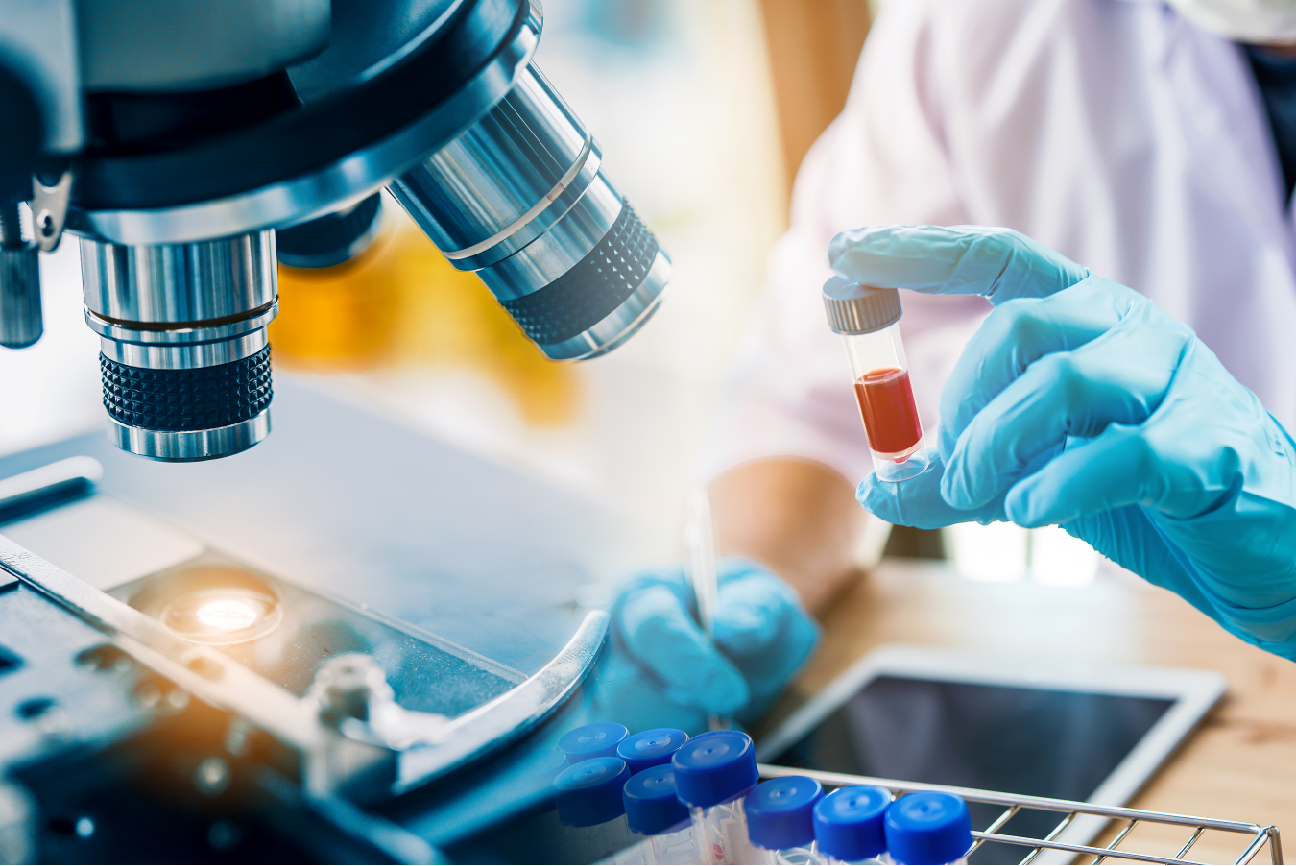MCMH + Clinics Laboratory
The MCMH Laboratory is a full-service lab which operates 24 hours a day, 7 days a week, and uses state-of-the-art equipment. Our lab is affiliated with The Pathology Center in Omaha and The American Red Cross for Blood Bank Services. The MCMH Laboratory is the only hospital lab in the area to use automated blood bank services.
Why would I need to visit the MCMH + Clinics Lab?
Your provider may order blood tests to indicate health conditions such as: diabetes, HIV, anemia, cancer, or coronary heart disease.
What are Common Blood Tests Your Provider May Order?
- Complete blood count tests the levels of red blood cells, white blood cells, platelets, hemoglobin, and hematocrit. Results may indicate nutritional deficiencies, anemia, clotting problems, blood cancer, infection or immune system disorders.
- A basic metabolic panel (BMP) typically tests calcium, glucose, sodium, potassium, bicarbonate, chloride, blood urea nitrogen and creatinine levels in the blood. Results may indicate kidney disease, diabetes, or hormone imbalances.
- Lipid panel test levels of two types of cholesterol: high-density lipoprotein (HDL), or “good” cholesterol low-density lipoprotein (LDL), or “bad” cholesterol. HDL is “good” because it removes harmful substances from your blood and helps the liver break them down into waste. LDL is “bad” because it can cause plaque to develop in your arteries, increasing your risk of heart disease.
- A thyroid panel, or thyroid function test, checks how well your thyroid is producing and reacting to certain hormones. Your thyroid is a tiny gland in your neck which helps regulate bodily functions like your mood, energy level, and overall metabolism.
- Sexually transmitted infection tests. Many sexually transmitted infections (STIs) can be diagnosed using a blood sample, including chlamydia, gonorrhea, herpes, HIV, and syphilis. Your provider may also request urine samples or swabs of infected tissue.
- Coagulation panels measure how well and how long it takes your blood to clot. Clotting is a critical process that helps you stop bleeding after a cut or wound. Results from this test can be used to diagnose leukemia, excessive bleeding (hemophilia), thrombosis, liver conditions, and vitamin K deficiency.
Your doctor may perform follow-up tests to confirm a diagnosis. It may be necessary to fast before a blood test. Fasting for 8 to 12 hours helps ensure that blood test results are free from these variables, making your test results as accurate as possible.

Are you interested in a career as a Medical Laboratory Technician?
MCMH + Clinics has a unique opportunity that allows a student to attend a fully funded MLT program while receiving on-site job training/employment at MCMH + Clinics. An MLT or medical lab technician is a professional who collects and analyzes body fluids, tissue and other substances using lab equipment, tests and procedures. They work in clinical, diagnostic or hospital laboratories and help diagnose disease or record normal findings by providing accurate test results.
Want to learn more about our MLT program?
Check out the MLT Program website at Des Moines Area Community College for a complete list of program requirements along with the MCMH + Clinics Program Application.
DMACC MLT Program
Download the MCMH + Clinics MLT program application here!